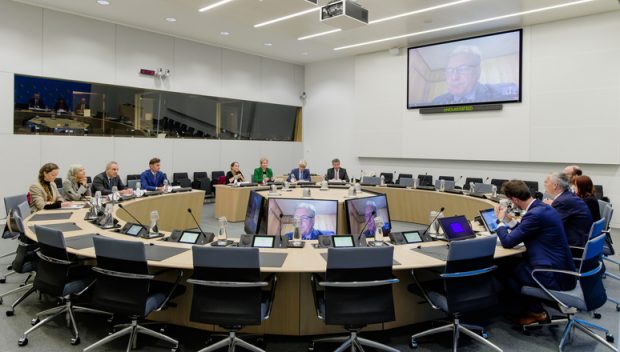
New reflection process to provide engagement, solutions, opportunities

BRUSSELS: The growing global complexity risks and competitions, compounded by wars and conflicts, are pushing the North Atlantic Treaty Organization (NATO) to adopt new approaches to deal with a more dangerous world, a senior official has said.
The conflict in the Middle East together with the continued Russia-Ukraine war make the world today even more complex than ever, and demands a new reflection process, he added.
At their summit in Lithuania in July, NATO member countries agreed to launch “a different reflection process on NATO’s approach to the Middle East and the Sahel (Southern Neighborhood).”
The group was established in early October and is composed of eleven experts, led by Professor Ana Santos Pinto from Portugal. They will report back to the Secretary General ahead of the meeting of Foreign Ministers in April 2024.
The aim is “to take into account threats and challenges as well as opportunities for engagement not just with our partners in the South but also with other actors in the South,” the NATO official who spoke on condition of anonymity said.
“This comes from the conviction that our partnerships with the region should be able to adapt to the challenges of our time and continue to address both allies’ and our partners’ concerns.
“In order to help us with this reflection process, the Secretary General has established an independent group of experts from Allied countries which will reflect on NATO’s approach to its southern neighborhood and formulate proposals to support allies’ decision on NATO’s future approach to the region.”
The group will look into the threat challenges emanating from the southern neighborhood as well as the opportunities, the official added.
“That work will then fit into the regular report that we will be producing in springtime. That report will be negotiated with the Allies and will be a part of the process.”
Strategic competition, pervasive instability and recurrent shocks define NATO’s broader security environment and in particular the Southern Neighborhood.
“We face both of us a critical time for our security and international peace and security and we will all be continued impacted by hybrid asymmetric threats, terrorism, irregular migration, human traffic and climate change. So, at this critical juncture is why we decided we needed to have a deeper reflection on the South and have some sort of a strategy,” he said.
“What we are trying to achieve is to have a sophisticated policy on the South that takes into account challenges, threats, but also the opportunities for engagement. How we can work more and better with our partners, how we can give value to partnerships, how we can better understand your needs and at the same time what you can provide to our own stability.”
According to the official, the current serious situation in the Middle East will have an impact on the reflection process initiated by the transatlantic alliance.
“We are closely monitoring the developments in and around Gaza, which will likely have severe implications for the whole region and beyond,” he said.
“NATO is deeply concerned about the situation in and around Gaza, including the humanitarian situation and the suffering of the civilian population.”


